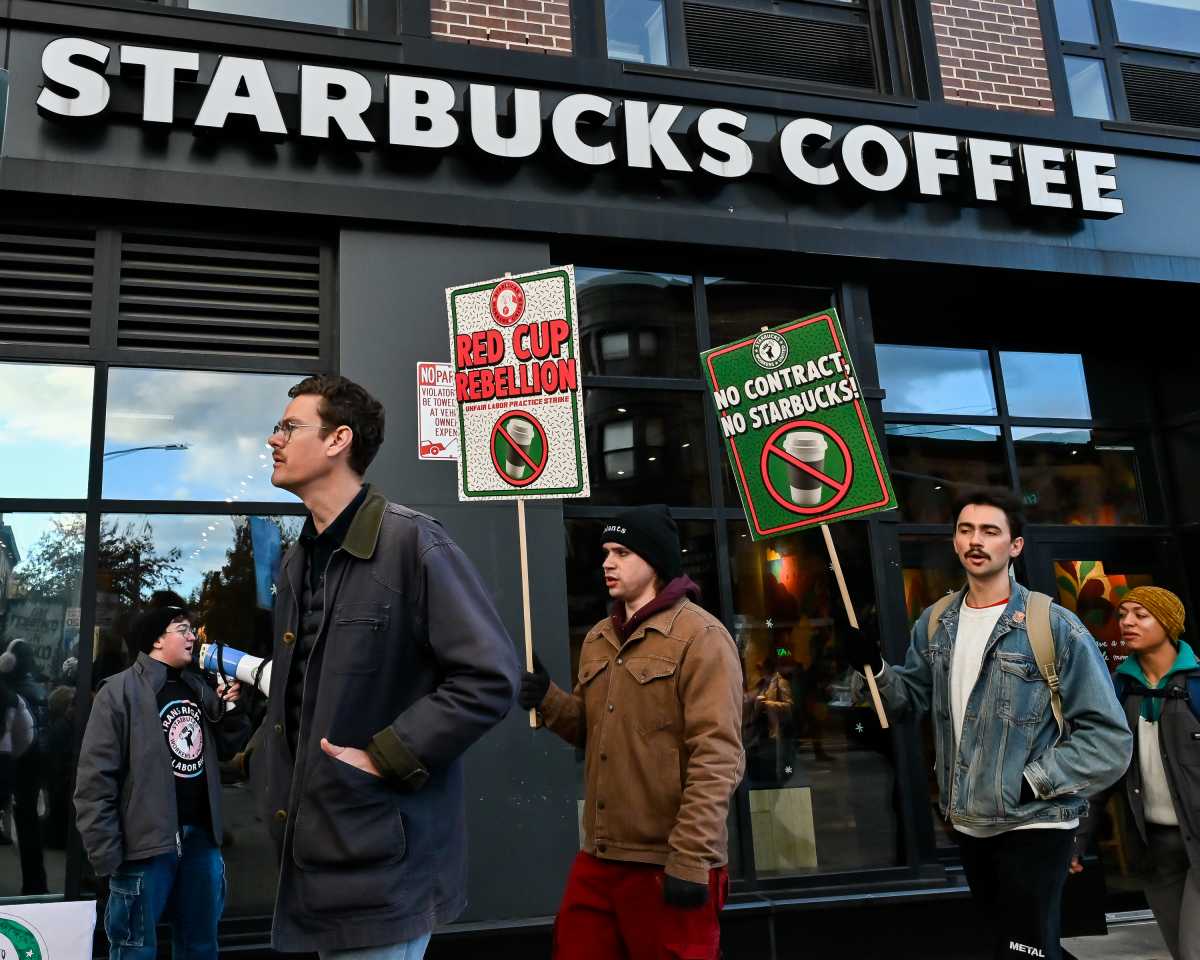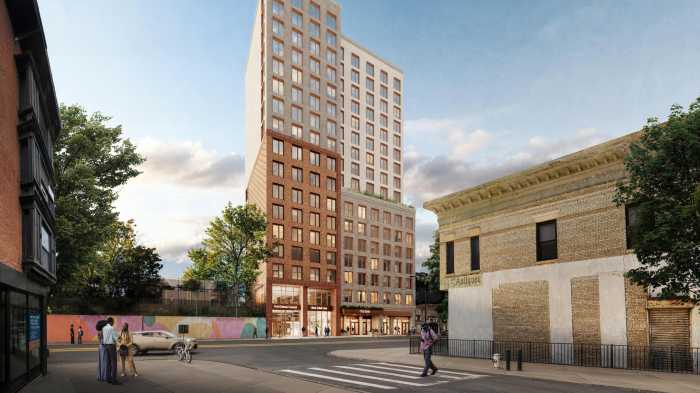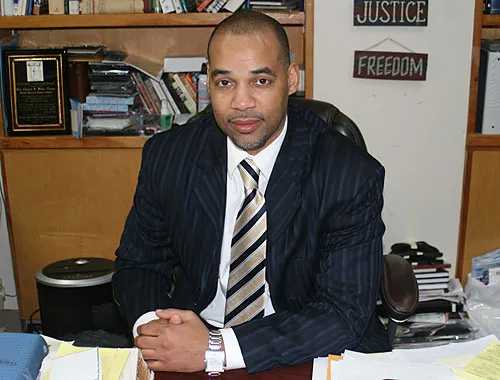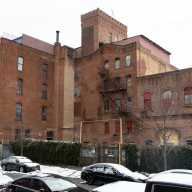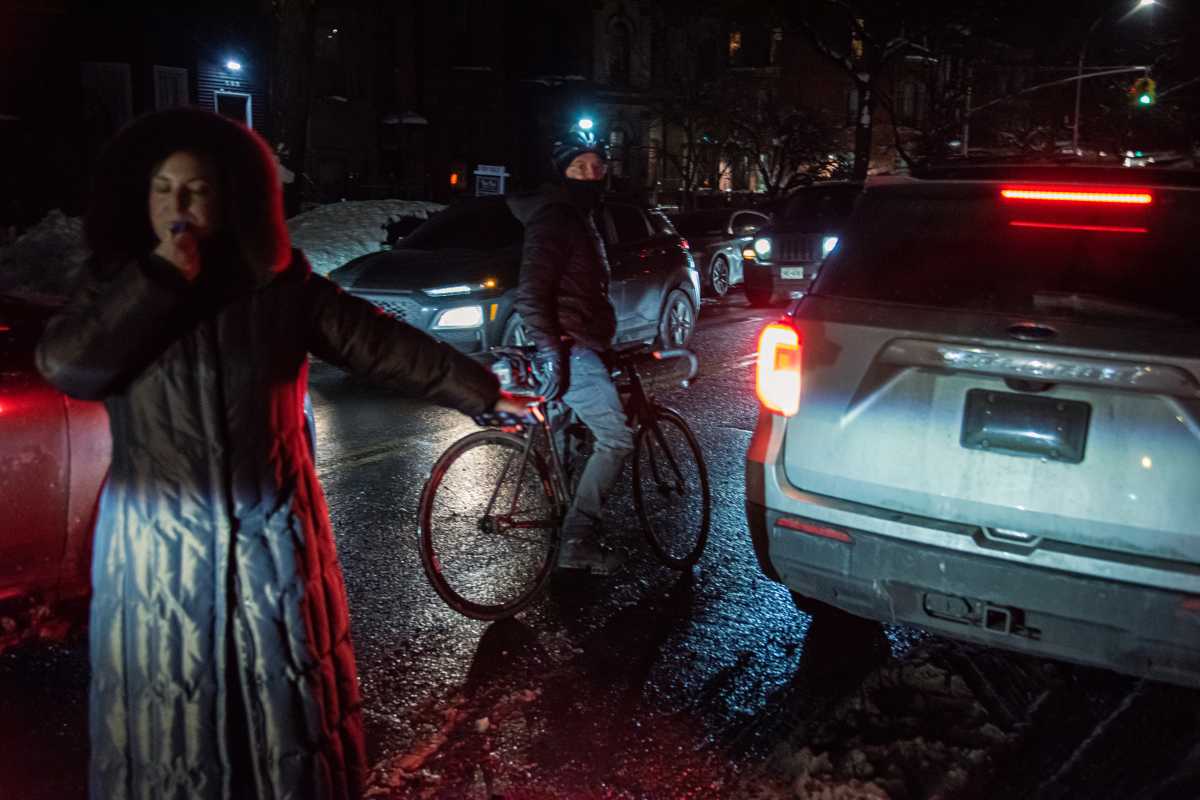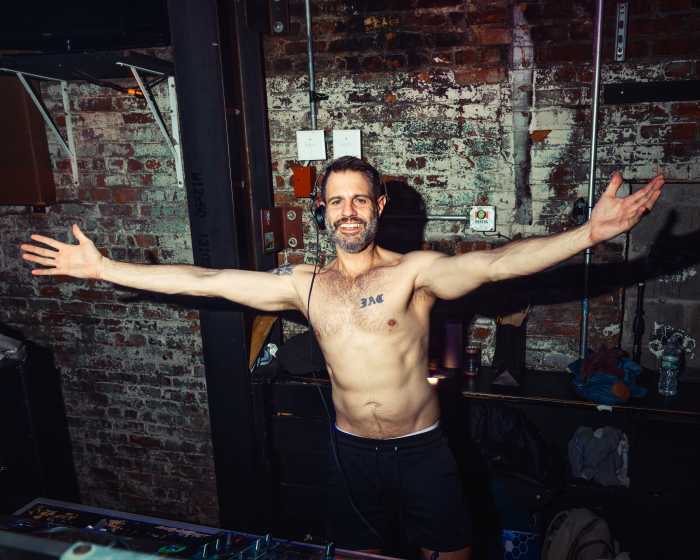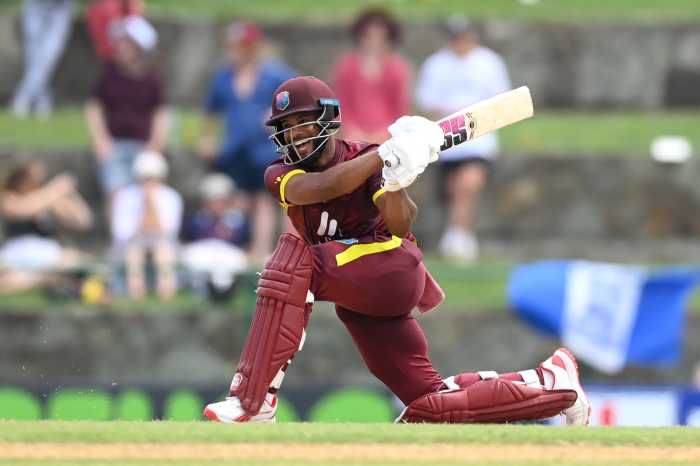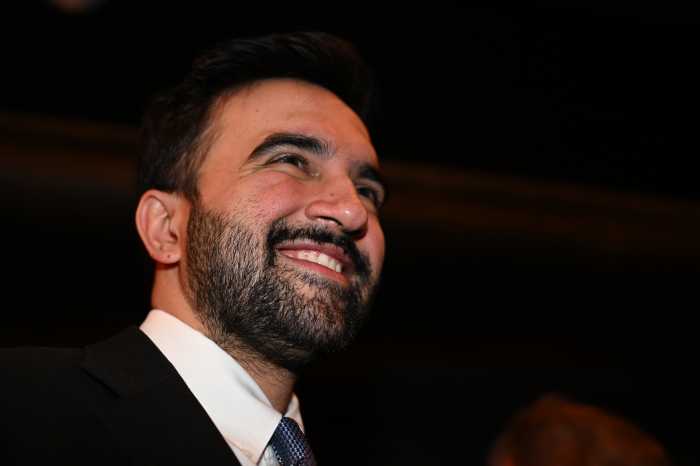Over one thousand Starbucks baristas at about 65 unionized stores in 40+ cities across the country walked off the job on November 13, turning the coffee giant’s famous Red Cup Day— the company’s busiest day of the year —into the “Red Cup Rebellion” unfair labor practice strike.
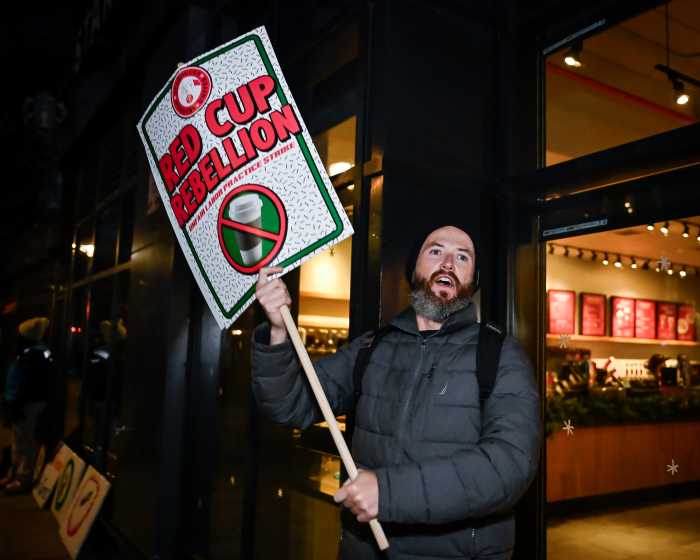
The baristas’ union, Starbucks Workers United, which represents over 12,000 baristas at more than 600 union stores, says that Starbucks has been stonewalling progress toward a fair union contract, which, according to Workers United, would cost the company less than one average day’s sales and less than Starbucks CEO Brian Niccol’s $96 million compensation after just four months on the job.
Last April, elected union delegates overwhelmingly rejected Starbucks’ contract offer, which Workers United says failed to improve wages or benefits in the first year of the contract and didn’t put forth proposals to address chronic understaffing.
The open-ended strike comes after six months of Starbucks refusing to offer new proposals, addressing understaffing, better pay, and a resolution to hundreds of outstanding unfair labor practice (ULP) charges related to union busting -Workers United has filed more than 1,000 ULPs, including over 125 since Jan. 2025. More than 700 charges remain unresolved, including national ULPs around bad faith bargaining and unilateral policy changes, as well as ULPs concerning retaliatory firings and discipline.
In Brooklyn, Starbucks Workers United members and allies protested outside the Starbucks on Lafayette Avenue in Clinton Hill.
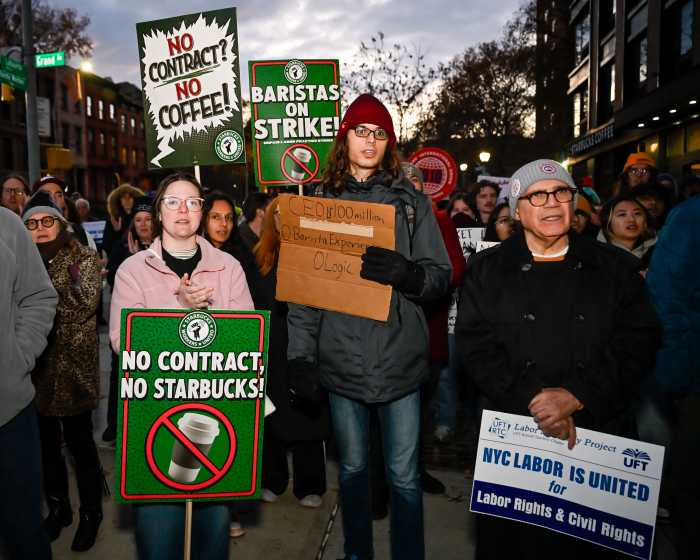
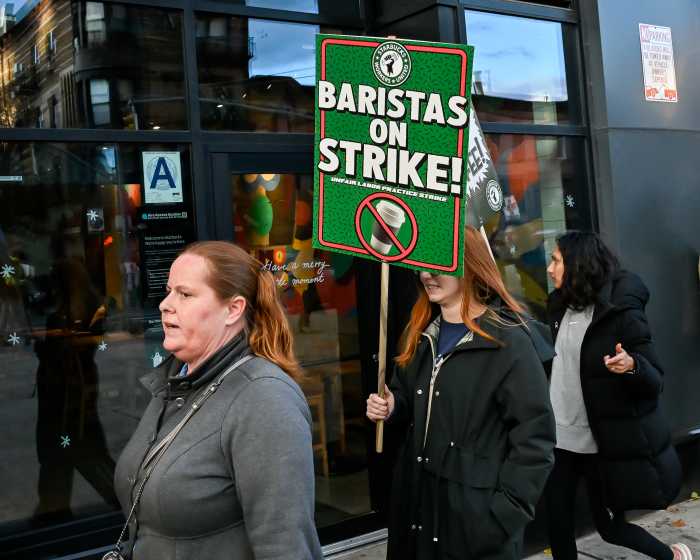
Rami Saaed has been a Starbucks barista at the Lafayette location for two years. She told the Brooklyn Paper that it was frustrating that Starbucks refused to return to the bargaining table.
“The company has not been negotiating in good faith, has over 700 unfair labor practices that have been left unresolved, and we are here to fight for a fair contract and to fight to resolve these unfair labor practices,” said Saaed, noting that without workers, Starbucks wouldn’t be able to make a profit.
“It is not [Niccol] who makes the drinks, who cleans the stores, who heats the food, who opens the store at four in the morning. It is not him who closes the store at 9 p.m.,” said Saaed, who would have to work 2941 years to earn the CEO’s salary. “These are things that workers do, and without workers, his company will not run. He needs to give us the respect as partners and give us the dignity of negotiations.”
One union captain pointed out that many Starbucks partners didn’t receive the hours necessary to qualify for benefits — an average of 20 hours a week — and that many relied on SNAP and Medicaid due to the low pay.
“Baristas deserve to be able to have a consistent schedule that allows stability; to know that we have enough to cover rent, food, and education. Starbucks knows where we stand. We’ve been clear and consistent about what we need to succeed: better hours, more take-home pay, and resolving legal issues,” they said.
A slew of local politicians, including New York State Assembly Members Phara Souffrant-Forrest and Claire Valdez, City Council Members Alexa Avilés and Chi Ossé, as well as American Federation of Teachers President Randi Weingarten, joined the demands for a fair labor contract.
Avilés told the Brooklyn Paper that a dignified union contract was fundamental to New York City, given its status as a union town.
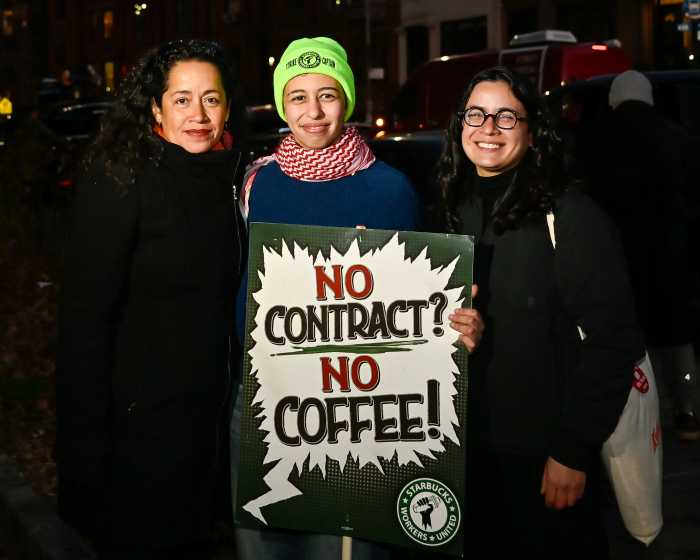
“We want all workers to be dignified and their labor to be paid, and we will not stand for exploitation,” Avilés said, noting that Niccol’s salary of $96 million was “absurd and offensive.”
“When you have people having to worry about rent, and you have one person making $96 million, it’s obscene, honestly. And the stockholders from that corporation should be offended that that is okay,” Avilés said.
Souffrant-Forrest told the crowd that it was imperative to ensure the baristas received a contract they deserved.
“Because that $6 coffee they are serving, [we] got to make sure it has some human rights behind it,” Souffrant-Forrest said.
Ossé pointed out that Workers United had the power to win the fight.
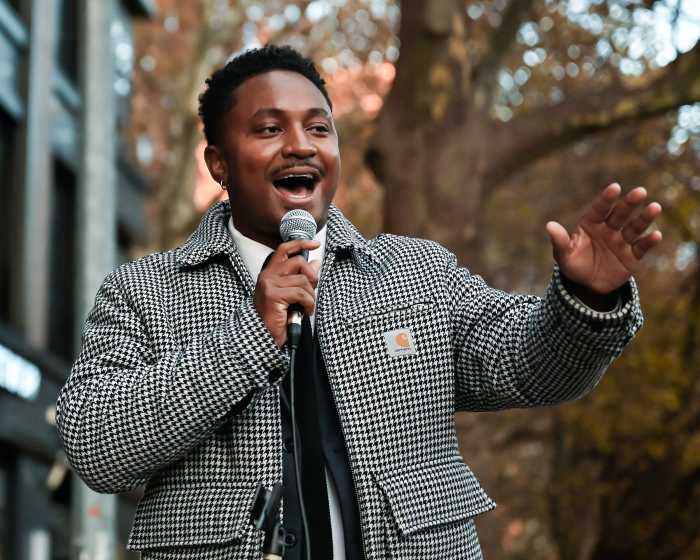
“While we see our leaders failing us at every single level of government, you are keeping the fire on the feet of our elected officials. And I know, I know, that with your strength, with your inspiration, with your power, we’re going to fight back, and we’re going to fucking win,” Ossé said.
Even the U.S. Congress chimed in on the labor dispute. On Nov. 10, U.S. Senators, including Bernie Sanders and Elizabeth Warren, and House representatives sent letters to Starbucks CEO Brian Niccol, urging him to negotiate a fair contract.
Both letters point out that in 2024, Starbucks generated over $3.6 billion in profit and distributed nearly $5 billion in stock buybacks and dividends, while Niccol’s compensation was roughly 6,666 times more than what the average Starbucks worker was paid for the entire year.
“Despite that extravagant spending on executives and shareholders, Starbucks refuses to reach an agreement with its own workers, even though you are less than one average day’s sales apart from a contract,” the letter, signed by 26 senators, states.
In a statement to Brooklyn Paper, Starbucks spokesperson Jaci Anderson said the company experienced “very minimal” disruption due to the strike, impacting less than 1% of the 17,000 coffeehouses.
“The vast majority of our 240,000 partners came to work ready to serve customers and celebrate Reusable Red Cup Day,” Anderson said.
Starbucks also claims that Workers United left the bargaining table and presented an incomplete framework to their delegates for a vote, and that the company has asked Workers United to return to the bargaining table on numerous occasions.
“We’ve been very clear – when the union is ready to come back, we’re ready to talk,” Anderson noted.


